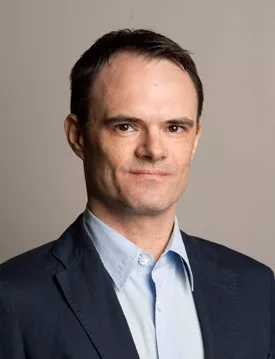Political Scientist Dominic Tierney Asks: What's the Endgame in War on ISIS?

The Atlantic: The War on ISIS: What's the Endgame?
In August 1941, Winston Churchill and Franklin Roosevelt met off the coast of Newfoundland to outline a shared vision for the post-World War II era. The British prime minister was so thrilled to see the American president that, in the words of one official, “You’d have thought he was being carried up into the heavens to meet God.” The two countries issued the Atlantic Charter, which sought “a better future for the world” through the principles of self-determination, collective security, and free trade. The United States hadn’t even entered the war yet, but it was already focused on winning the peace. The endgame was not just the defeat of the Axis powers, but also the creation of a stable global order, in which World War II would be the last world war.
Today, the United States is contemplating a major expansion of its military campaign against ISIS. Driven partly by faith that the end times are imminent, ISIS has stepped up expeditionary attacks outside its caliphate, including the bombing of a Russian jet over Egypt, a suicide attack in Lebanon, and coordinated assaults in Paris.
In the struggle against ISIS, however, far from preparing for the postwar world, U.S. politicians haven’t shown much interest in long-term thinking. Instead, the debate is fixated on immediate tactical questions, or which hill to capture. Who is planning for a better peace?
...
What is the endgame in the war against ISIS?
First of all, suppressing or defeating ISIS is not the goal. Rather, the aim is to create a secure Iraq and Syria. War is not about destroying the enemy; it’s about building a better peace so that the threat doesn’t reemerge. There’s no point in toppling a regime if the result is chaos and anarchy, whether that regime is the Taliban in Kabul, Saddam in Baghdad, Qaddafi in Tripoli— or ISIS in Raqqa. You can’t march away from smoking ruins and call it a victory. After all, ISIS’s predecessor was seriously weakened during the U.S. troop surge in Iraq in 2007. But the insurgents made a comeback due to sectarianism and misrule in Baghdad.
...
Even the best outcome in the Middle East won’t feel like victory. We’re looking at months or years of battling ISIS, and then years or decades of stabilizing Syria and Iraq.
Critical decisions are about to be made that could starkly curtail future options. We need to think more like Roosevelt, and less like Tojo. Achieving real success means considering both urgent needs and ultimate goals. The objective is not just to overthrow ISIS, but also to build a new and durable order. Either create a plan to win the peace, or don’t fight at all.
ISIS shouldn’t be the only side thinking about the end times.
Read the full article at The Atlantic.
Associate Professor of Political Science Dominic Tierney, a senior fellow at the Foreign Policy Research Institute, is a contributing editor at The Atlantic and the author of How We Fight: Crusades, Quagmires, and the American Way of War, among others. He completed his Ph.D. in international politics at Oxford University in 2003 and was a post-doctoral fellow at the Mershon Center at Ohio State University and the Olin Institute at Harvard University before joining Swarthmore's faculty in 2005. In 2008-2009, he was a research fellow at the John F. Kennedy School of Government at Harvard.



